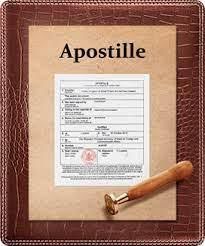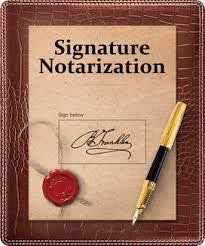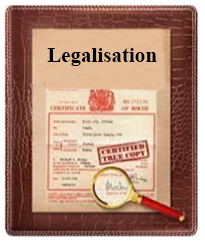
Certified (sworn) translations are translated documents that are recognised as legally valid by official institutions. They are performed by translators officially accredited at Italian courts of law.
To be legalised by a notary, a translation need not be the work of an officially accredited translator. Unlike other types of translation, the translator must appear before a notary and sign a sworn declaration that the translation is faithful to the original.
A certified copy is a true copy – often a photocopy – of the original document. It does not certify the authenticity of the original. A true copy may be required for official use or for commercial purposes. Thus the photocopy acquires the same value as the original.
Public documents to be sent abroad must be legalised or apostilled. Either procedure officially attests the legal status of the issuing authority signing the document and the authenticity of the signature itself. All documents for signatory countries to The Hague Convention must be authenticated by Apostille applied as a stamp, sticker, attached sheet or otherwise. Countries that do not recognise Apostilles require a legalisation by the Italian authorities and the diplomatic or consular service in Italy. Some countries also need a stamp from the foreign chamber of commerce. For documents issued by register offices or by municipal, health, school or university authorities, legalisation or apostilling is the responsibility of the Prefect’s office or local government office; for documents signed by notaries or court officers, it is down to the State Procurator.
The documents we can help you with
- Legal: Judicial proceedings, summons, appeals, statutes, patents, contracts (employment, leases, credit, association, brokerage) and more.
- Medical: Pharmacovigilance documentation (GMP, CPPs, CPOs, PSURs, Expert Reports), medical records and reports, regulatory communication, information leaflets, summaries of product characteristics, etc.
- Financial and Commercial: Banking documentation, financial reports, annual reports, messages to investors and shareholders, meeting minutes, accounting documentation, audit reports and more.
- Personal documents: Birth, marriage and death certificates, criminal record checks, educational documentation (certificates, records, course syllabuses), driving licences, passports, etc.
Specialists in LEGALISATION at





